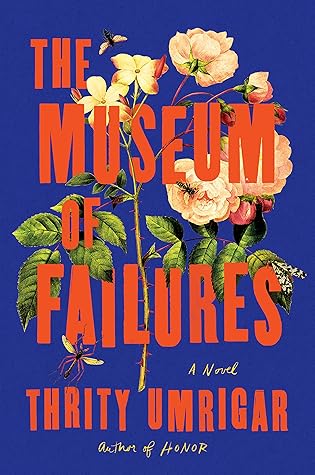More on this book
Community
Kindle Notes & Highlights
He had often thought of Bombay as the museum of failures, an exhibit hall filled with thwarted dreams and broken promises.
Back home, in their cosseted life on their cul-de-sac, it was easy to pretend that life in the US was pretty and benevolent; hearing a story like Sunil’s blew open that myth, laid bare the fact that the comfort and luxuries enjoyed by the few—the fancy restaurants, the manicured lawns, the beautiful monuments, the movable feasts, the supermarkets fat with bacon and cheese and gourmet breads—were built on the backs of brown-skinned ghosts.
Of course, there were unhappy people everywhere on earth, and if you catalogued all their griefs and disappointments, every place could be considered a museum of failures. One could argue that this was the universal human condition.
There is no room for hope in the museum of failures. Even if it hangs on the walls for a moment, it usually comes crashing down.
Despite its many blind spots, he’d never imagined the US as anything other than extraordinary, unique, the Alphonso mango of nations. Now, for the first time, it seemed . . . ordinary. He now lived in a country riven by the same tribalism and hatreds that haunted lesser nations. He had always seen American democracy as a giant oak tree, with roots that went more than two hundred years deep. But it turned out the roots were shallow, held in place by custom and good manners, and all it took to lay them bare was one man who refused to play by the rules of civility and democracy.
The bitterest, most cynical part of Remy was almost grateful for the last three years, when the millions of Americans had made their distrust of foreigners, their xenophobia, crystal clear. He wore this new knowledge like an overcoat over his expensive suits—that despite being allowed to take a sizable bite out of the American dream, he would never completely belong to America.
This was the eternal burden of the immigrant, the divided soul. He would always be a foreigner in America, but the irony was, he was also a stranger in India.
This was the power of India: it whittled you down, stripped you, made you believe not in the promise of the future as America did, but in the firm hold of the past.
A city full of standing women—working, commuting, eking out a living so that their sons could go to a slightly better school, so that their unemployed husbands could get their daily drink, so that their daughters could maybe go to college, so that they could afford a dowry for those girls. This was what held the world together, this unsung army of silently suffering standing women.
He said many other things, but what I remember the most was the grief on his face. It made him look ancient; there was something classical, timeless, about his suffering. Fallen man, I thought.
It is the strangest thing—we become so many different people in one lifetime. But in the end, when everything else has been stripped away, only one thing remains. Let us call it love.


